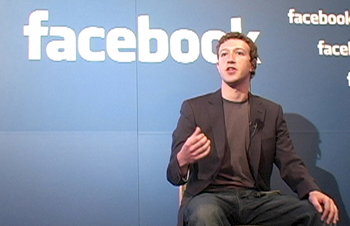Dec 17: Many of us woke up today to notifications on our Facebook timeline where our friends showed their support for the free internet. In India, free means a lot.

On a similar front, free has another meaning. Where free comes with no charge. It"s the best thing to happen during the year end. Obviously nothing is every given for free! It"s usually a bundle. For instance, you buy a shirt and get another free. What it usually comes down to is you get 2 shirts for the price of one. Or one shirt at half the price. In effect, you paid for one shirt, but end up getting two.
Clearly free is the most exciting word we can hear of. It excites us, and we look forward to free around any deal we may get.
So essentially, what is it with Faceb
ook that it has managed to put off so many people and get them to vociferously oppose its Free Basic package.
It"s interesting how the debate to net neutrality began with activists setting up a website (savetheinternet.in). And now Facebook is taking the same route, but countering the Net Neutrality camp by influencing its user base to send emails to Trai that renders their support for Free Basics in India.
The user clicking on the Send Email button is showing support for Digital Equality, which is a good term for free as in free of charge. But that free, hinders the basic aspect of freedom, of choice, that many more want to defend with all might!
The email that is drafted by Facebook on your behalf reads:
To the Telecom Regulatory Authority of India, I support digital equality for India. Free Basics provides free access to essential Internet services, such as communication, education, healthcare, employment, farming information and more. It helps those who can"t afford to pay for data, or who need a little help with getting started online. And it"s open to all people, developers and mobile networks. With 1 billion Indian people not yet connected, shutting down Free Basics would hurt our country"s most vulnerable people. I support Free Basics and digital equality for India. Thank you.
Over the series of meetings that Mark Zuckerberg has had with the Indian Prime Minister Narendra Modi, and his subsequent interest in India, there has been some key messages that have stood out. And that is the need to get more Indians on the Internet. In reality, Facebook. We"ve seen Sundar Pichai also take an active interest to push for Wi-Fi, which is good. But we believe, there"s much more that needs to be done!
You"d probably agree, there"s a strong business case to focus on India. Over the years, our sheer population has moved from being a liability to being our greatest asset. For we"ve created a huge internet hungry audience. The best thing for companies such as Google and Facebook.
However, there"s a key difference in the approach taken by Google and Facebook. While Google is enabling free internet through Wi-Fi networks, Facebook is riding on a fine line, between what is noble and what isn"t. Free internet would eventually come at a price. And that price is freedom itself. Strong activists who have been fighting for net neutrality, or the objective independence of data packets we access online have vehemently opposed Facebook"s Free Basics plan. Some of these individuals include Sir Tim Berners-Lee, the creator of the modern web.
In addition, Google is also working towards speeding up the mobile internet experience by delivering lighter, leaner web pages, which is quite similar to Opera Turbo that enabled closer delivery of web content, through more optimised and compressed data packets.
Update: In response to this story, Facebook has issued an official statement, attributed to its spokesperson: “Hundreds of millions of people in India use the Internet every day and understand the benefits it can bring. This campaign gives people the opportunity to support digital equality in India. It lets people speak in support of the one billion people in India who remain unconnected, and lets them participate in the public debate that is being held by The Telecom Regulatory Authority of India on differential pricing for data services. And it gives them the opportunity to support Free Basics, which is proven to bring more people online and accelerate full internet adoption.”
Effectively, you are expected to take a stand. Which side of free are you on? If you"re undecided, then the basic rule may help – there"s nothing like a free beer!






Comments
Wow, awesome blog layout! How long have you been blogging for?
you made blogging look easy. The overall look of your site is great, let alone the content!
Also visit my web site create custom shirts: http://createteeshirts.net
Akuratny przesiew twardosci zasilacza pragnie z niniejszego, co zakladamy zanim wspomóc Totez te, jesliby planuja Mocarstwo zjednac rozswietlenie LED
reklamuje wypominac: Zasilacze do rozjasnienia LED
wykonuja na trendzie zrównowazonym DC, na rozciagnieciu 12V (wylacznie 24V szyldy potrzebuja
wiekszego zasilania
Also visit my web page :: Tasma LED 300 wodoodporna: http://www.xinsheng3.com/comment/html/?5072.html
Add new comment